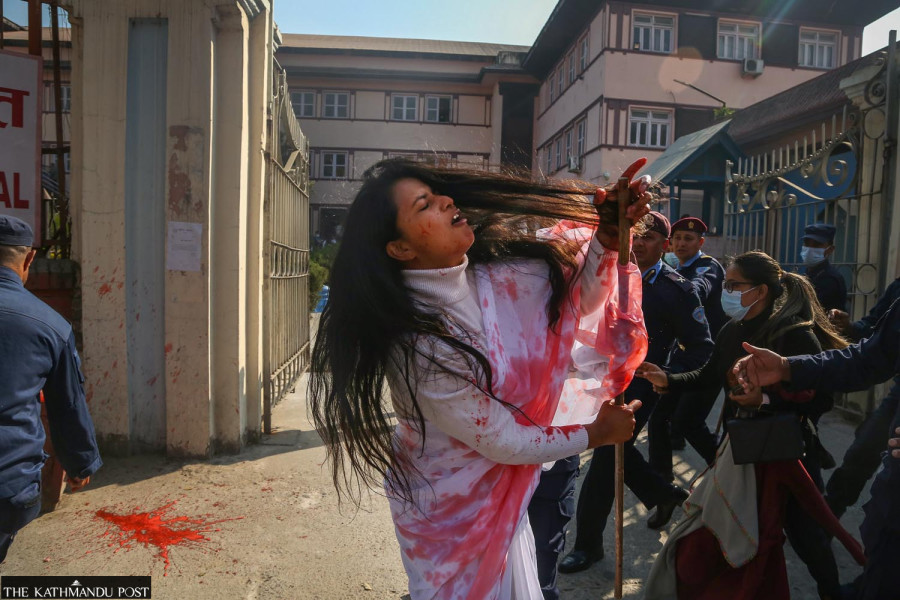National
Call for year-round advocacy on gender-based violence
Globally, it is estimated that one in three women experience physical or sexual abuse in their lifetime, according to the United Nations Population Fund.
Post Report
The 16 Days of Activism against gender-based violence, an annual global campaign, kicked off on November 25 and it is being marked with various programmes in Kathmandu. Rights activists, however, say the celebrations should not be limited to the stipulated time and that the activism should centre on implementable actions.
This year the activism has started with the thame ‘Unite activism to end violence against women and girls,’ and is going to last till December 10, the international human rights day.
Human rights activist and former member of the National Human Rights Commission, Mohna Ansari said that she is not updated on the present activism. “I have only seen some rallies. The activism should also reach and impact grassroots,” said Ansari.
She further said that victims of gender-based violence from the decade-long Maoist insurgency should also get justice. “Our tardy justice-delivery system needs an urgent upgrade,” said Ansari.
Ansari referred to Binu Yadav of Solukhumbu who protested outside the Supreme Court on Tuesday by throwing red-coloured water at the main entrance of the court.
Yadav said she was deprived of justice even after filing a complaint against her husband on torture charges.
Meanwhile, rights activists have also raised the issue of Kathmandu mayor Balendra Shah trying to evacuate the Thapathali squatter settlement on Monday where vulnerable people like new mothers, children and people mourning their relative’s death were troubled.
“The violence is palpable everywhere, and there should be a strong mechanism to address them,” said Ansari.
Meanwhile, Hima Bista, executive director of Women LEAD Nepal, a non-governmental organisation that offers leadership training to women, said the campaign should not be limited to 16 days but should continue for 365 days.
“This time I can see the campaign being celebrated in a more creative way, because just marching on the streets with placards does not help us to fight gender-based violence,” said Bista.
“The awareness programme should be more precise and creative,” she added.
She said she was closely following the results of the recent polls. “I am concerned about what kind of leadership the country is getting, and how it is going to address various women's rights- and human rights-related issues,” said Bista.
To minimise gender-based violence, Bista stressed the importance of having more women in leadership roles. “But this time there is likely to be minimal women’s representation in our national parliament through the first-past-the-post (FPTP) electoral system,” said Bista.
As of Tuesday evening, out of 160 declared FPTP seats, women have won only eight. “But there are also new faces who can be expected to take up this issue in Parliament,” said Bista.
The activism against gender-based violence was started at the inauguration of the Women’s Global Leadership Institute in 1991. Violence against women and girls is one of the most prevalent human rights violations in the world. Globally, it is estimated that one in three women experience physical or sexual abuse in their lifetime, according to UNFPA.
This time the campaign in Nepal commenced on Friday in the presence of National Women Commission’s chairperson Kamala Kumari Parajui and National Human Rights Commission chair Topa Bahadur Magar.




 16.12°C Kathmandu
16.12°C Kathmandu













